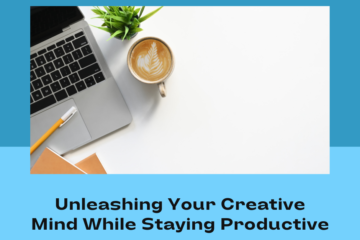
Introduction:
Staying healthy is a big challenge today. The digital era, with its lightning-fast information and technology, has sped us into a time when speed is unmatched. Screens, alerts, and due dates have become more and more important in our lives. Multitasking is no longer a skill; it’s expected, and the constant pressure to be productive often gets in the way of our own health and happiness. Stress has quietly become a powerful enemy because of this fast-paced way of life.
The shadow of stress hangs over everyone, whether they are navigating the high-stakes pressure of the business ladder, the fast-paced pulse of city life, or the many demands of modern life. This thing has become so much a part of our daily lives that we don’t even notice it until its effects are too strong to ignore. Nevertheless, in these rough seas of high stress and constant demand, it’s not only a good idea, it’s necessary to chart a course for health and fitness. Let’s dig deeper into why we need to put our health first in these tough times and look at the ways we can do that.
Understanding the Impact of Stress on Health

Every day, the modern world gives us a huge number of problems to solve, and stress often makes these problems worse. Some people may think that worry is just a normal part of modern life, but it’s important to know how much it hurts our mental and physical health.
Mental Health: The Hidden Scars of Stress
The damage that stress does to our mental health is often not obvious, but it is deep and lasts a long time. One of the most noticeable effects of long-term stress is the start of worry. When our brains have to deal with things that are constantly stressful, they often become more alert. This constant state of worry and anticipation can turn into generalized anxiety disorder, which makes a person feel uneasy all the time without a clear cause.
Long-term stress has also been linked to depression. Putting yourself through stressful situations over and over again can make you feel lost and depressed, and you may lose interest in things you used to enjoy. The link between stress and depression goes in a circle: stress can lead to depression, and depression can make stress worse, making it hard to break out of the loop.
Besides these, long-term worry also changes the way your brain works. Making decisions takes longer and often leads to choices that aren’t in your best interest because it clouds your reasoning. Stress also makes people think negatively. When someone is stressed, they might overreact or think that problems are impossible to solve. This negative attitude can make it harder to solve problems and deal with the challenges we face every day, making simple tasks seem more difficult than they really are.
Physical Health: The Tangible Effects of an Intangible Foe
They are both real and scary: worry has real effects on our bodies. The first thing our bodies do when they sense danger is release stress hormones like adrenaline and cortisol. While these hormones are necessary for quick, short-term reactions (like running away from a threat), letting them out all the time because of long-term stress can be very bad for our health.
The coronary system is especially at risk. High blood pressure, higher cholesterol, and a higher chance of coronary artery disease have all been linked to long-term stress. Because our hearts are always full of stress hormones, they work harder than they should, which damages them over time.
The damage also goes to our defense system. Stress lowers our defenses, which makes us more likely to get sick. Stress makes it harder for the body to fight off diseases, which means that common sicknesses happen more often and take longer to heal.
There is also damage to the intestinal system. Stress can be the root cause of many stomach problems, including acid reflux, gastritis, colitis, and even irritable bowel syndrome. Also, stress can make us eat in unhealthy ways, like not eating enough or eating too many unhealthy foods at once, both of which can throw off our gut balance even more.
Stress can make muscles tense up all the time, which can cause ongoing aches and pains, especially in the neck, shoulders, and back. These aches can turn into long-term diseases that make it hard to move around and lower your quality of life over time.
In addition, stress can also cause or make headaches worse, like tension headaches or migraines. Sometimes, being under a lot of stress all the time can even make you more likely to get heart diseases, like heart attacks.
Recognizing the Need to Prioritize Health
Today’s world is so busy that every minute feels like a race against the clock. It’s too easy to forget about what’s important: our health. Like a skilled military leader in a fight, we must first see the battle that lies ahead. It’s sneaky how places with a lot of stress can make the unusual seem normal. The constant demands and pressures can change how we see things, making tiredness, stress, and feeling overwhelmed seem like the “new normal.” When things are pushed so hard from the outside, schedules, goals, and other outside pressures can make health seem less important.
Our health, on the other hand, isn’t just another thing on a list; it’s what our lives are built on. Think about the three legs of happiness, creativity, and efficiency. All three legs are important, but health is what the tripod is built on. Being sick makes you less productive, less creative, and harder to find happiness.
It’s not enough to just get work done; productivity is also about the quality and impact of that job. If you’re not healthy, even small chores can become huge problems. This also makes it harder for people to be creative, which is what leads to new ideas. It’s hard to think outside the box or picture new ideas when you’re mentally drained from stress, anxiety, or a physical illness. And that desired state of mind called happiness is closely linked to good health. Pain, mental instability, or emotional upheaval can really take away from the happiness and contentment we get from life’s events.
Putting health first isn’t just a way to take care of yourself; it’s an investment that pays off in every part of our lives. It affects our careers, the strength of our relationships, and how passionate we are about the things we love. When we put our health first, we not only protect ourselves, but we also make sure that we bring our best selves to everything we do. We value the very heart of life itself when we value our health.
Practical Ways to Prioritize Health in High-Stress Situations
Getting through times of high stress is a lot like steering a ship through rough seas. To get through these stress storms, our bodies and minds need strong health strategies, just like a ship needs a strong structure and a skilled leader. Let’s look more closely at some useful strategies we can use to protect ourselves from the constant stress.
a) Setting Clear Boundaries: Navigating the Digital Deluge
In this age of constant connectivity, the lines between job and personal time are becoming less clear. Emails, notifications, and virtual talks take up time that used to be set aside for rest and relaxation.
Putting up walls is the answer. As soon as we clearly separate work time from personal time, we give ourselves permission to mentally and online disconnect. This could mean making a promise not to check email after 7 PM or setting aside certain times each day just for breaks. It’s important to know that these limits aren’t just meant to stop people from working too much; they’re also meant to give them time to relax and recharge. Engaging with something all the time, even if it’s just reading an email, keeps the mind busy and alert, which stops it from really relaxing. By making these clear lines, we lower the risk of burnout and give our thoughts the rest they need to recover and recharge.
b) Incorporate Physical Activity: Movement as Meditation
This proverb, “A healthy mind in a healthy body,” is very wise. It’s not just about building muscle or getting stronger; exercise is also a powerful way to clear your mind.
Something as easy as going for a 10-minute walk can help a lot. Going for a walk, especially outside, gives us a break from our work, a new view, and fresh air. It works in two ways: moving around releases endorphins, and being in nature is a soothing place to think and rest.
With its gentle movements and focused breathing, yoga takes a whole-person approach to mental and physical health. It’s not just about being flexible; it’s also about getting to know yourself, finding your center, and being grounded.
Meditation isn’t really a physical exercise, but it does help your mind work out. Meditation gives us tools to deal with the crazy waves of stress by teaching us to center our thoughts and pay attention to the present moment.
Lastly, think about doing some easy stretches, especially if you sit at your desk for a long time. These stretches can help ease muscle stress, boost blood flow, and give you a chance to reset and recharge.
c) Maintain a Balanced Diet: Fueling the Fortress
When people are under a lot of stress, food is often forgotten or, worse, used as a crutch. Sugary snacks can be tempting because they give us quick energy boosts, and missing meals because we’re busy can be bad for our health.
A well-balanced diet is like good fuel for a car. Getting the right foods is important for keeping our bodies working well, our brains sharp, and our emotions stable. Eating regular meals that are full of fruits, veggies, whole grains, proteins, and healthy fats will keep your energy level steady, instead of going up and down like sugary snacks do.
Also, some things can help keep your mood stable. Healthy brains and stable moods have been linked to omega-3 fatty acids, which can be found in foods like fish, flaxseeds, and walnuts. Also, foods like berries that are high in antioxidants can help fight oxidative stress, which is a result of long-term worry.
d) Seek Social Support: The Power of Connection
Our ability to meet, talk, and work together has been a key part of our long history of evolution. We are naturally social, and being able to use this to your advantage can help you handle high-stress scenarios.
Isolation can make feelings of hopelessness and overload worse when you are under a lot of stress. Getting together with family or friends, on the other hand, can help you feel better. Talking to someone can help you let out your feelings and create a safe place where your feelings are understood and accepted. Talking about your worries can sometimes make them less important and easier to handle.
An outside view from a family member or friend can also shed new light on issues, revealing answers or points of view that were missed before. It’s like having several navigators on a ship during a storm; each one uses their own skills to find the best way to move forward.
Therapy or other forms of professional help can be very helpful for some people. Therapists give people a safe, nonjudgmental place to talk about and understand things that cause stress, giving them tools and methods to deal with things better.
e) Prioritize Sleep: The Underrated Elixir

People today want to be successful and productive, so sleep is often put on the back burner. It’s seen more as a luxury than a requirement. But not getting enough sleep is like ignoring the building’s base and only looking at its front.
Sleep is the body’s way of resetting itself. These times are when the body heals, memories are stored, and the brain gets some much-needed rest. Not getting enough sleep not only makes worry worse, but it also makes it harder to think clearly. It’s harder to make decisions, you might lose focus, and your emotions might get stronger.
A good night’s sleep of 7 to 9 hours is best for most people. This doesn’t just mean staying in bed; it means getting deep, restful sleep. Having a regular sleep routine, making your bedroom calm, and staying away from screens and caffeine before bed can all help you sleep better.
f) Learn to Say No: The Art of Selective Engagement
Today, there are a lot of chances and duties, so being able to say “no” is both an art and a skill. It can be too much to handle the pressure to always be ready, to take every chance, and to wear many hats.
But it’s important to know that time and energy are limited tools. When you take on too much, you will always get burned out and be less interested in each job. By carefully picking encounters, one can make sure they get the most out of them and get the best results.
Knowing your limits means being able to say no to things you don’t want to do, like an extra job at work, a social event, or any other responsibility. It doesn’t mean you’re weak; it means you’re smart. Consider delegating jobs that you can’t refuse. Assigning jobs to other people when possible can help reduce stress and make sure that work gets done quickly.
Remember the Bigger Picture: Life Beyond the To-Do List
There’s a song of life that’s often hard to hear over all the noise of tasks, deadlines, and the clock that never stops ticking. No matter how important our jobs, responsibilities, and roles may seem, they are just small parts of this big picture. They give the music depth and rhythm, but they don’t make it what it is.
It’s easy to think that our worth is tied to the projects we lead, the praise we get, or the hours we put into our jobs when we look at our lives in great detail. But when we take a step back and look at life as a whole, we see a different picture.
At the end of our journey, we don’t usually remember the late nights at the office or the tasks we did. Instead, it’s the joy of laughing with a friend or family member, the peace of a quiet morning, the excitement of trying something new, or the familiarity of an old friend. It was when we truly “lived,” when we let go of our roles and enjoyed the pure, unadulterated spirit of being.
The most important part of this bigger picture is relationships, with all their ups and downs, problems and rewards. Building these connections, whether they’re with family, friends, or even just yourself, makes our lives better in ways that financial things can’t.
In the same way, our health and happiness are important parts of this fabric. Things that are supposed to be happy can lose their shine without health, and even the biggest accomplishments can feel empty. Happiness, on the other hand, isn’t just a result; it’s also a cause. It fuels our passion, inspires our creativity, and gives our work value.
Conclusion(Staying Healthy):
With all the demands and pressures that are always there, high-stress settings can feel like whirlpools that could pull us into a vortex of chaos and exhaustion. But we can stay grounded if we use context as a rock.
The first step is to understand how important overall well-being is. To be truly healthy, one must not only be physically free of illness, but also feel good emotionally and think clearly, which makes our days better.
Developing long-lasting habits, like setting limits, practicing mindfulness, making sure we get enough exercise, or even just being thankful, can make us stronger. These habits, which may not seem important, help us handle high-stress situations with grace, even when things get rough.
While we’re traveling through this crazy world, it’s important to stop and reset our minds often. Let our choices be based on health and well-being in every way. Because these choices, which are based on well-being and living consciously, make the most beautiful melodies in the grand music of life.



0 Comments